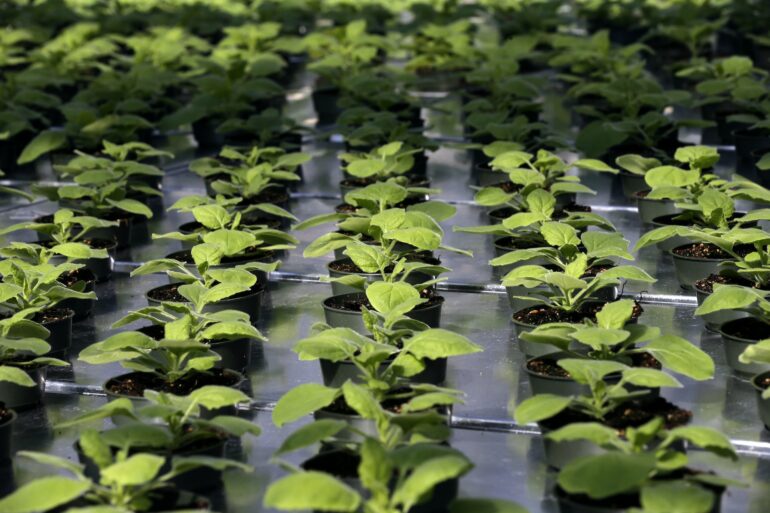Just like any other organism, plants can get stressed. Usually it’s conditions like heat and drought that lead to this stress, and when they’re stressed, plants might not grow as large or produce as much. This can be a problem for farmers, so many scientists have tried genetically modifying plants to be more resilient.
But plants modified for higher crop yields tend to have a lower stress tolerance because they put more energy into growth than into protection against stresses. Similarly, improving the ability of plants to survive stress often results in plants that produce less because they put more energy into protection than into growth. This conundrum makes it difficult to improve crop production.
I have been studying how the plant hormone ethylene regulates growth and stress responses in plants. In a study published in July 2023, my lab made an unexpected and exciting observation. We found that when seeds are germinating in darkness, as they usually are underground, adding ethylene can increase both their growth and stress tolerance.
Ethylene is a plant hormone
Plants can’t move around, so they can’t avoid stressful environmental conditions like heat and drought. They take in a variety of signals from their environment such as light and temperature that shape how they grow, develop and deal with stressful conditions. As part of this regulation, plants make various hormones that are part of a regulatory network that allows them to adapt to environmental conditions.
Ethylene was first discovered as a gaseous plant hormone over 100 years ago. Since then, research has shown that all land plants that have been studied make ethylene. In addition to controlling growth and responding to stress, it is also involved in other processes such as causing leaves to change color in the fall and stimulating fruit ripening.
Ethylene as a way to ‘prime’ plants
My lab focuses on how plants and bacteria sense ethylene and on how it interacts with other hormone pathways to regulate plant development. While conducting this research, my group made an accidental discovery.
We’d been running an experiment where we had seeds germinating in a dark room. Seed germination is a critical period in a plant’s life when, under favorable conditions, the seed will transition from being dormant into a seedling.
For this experiment, we’d exposed the seeds to ethylene gas for several days to see what effect this might have. We’d then removed the ethylene. Normally, this is where the experiment would have ended. But after gathering data on these seedlings, we transferred them to a light cart. This is not something we usually do, but we wanted to grow the plants to adulthood so we could get seeds for future experiments.
Several days after placing the seedlings under light, some lab members made the unexpected and startling observation that the plants briefly gassed with ethylene were much larger. They had larger leaves as well as longer and…



